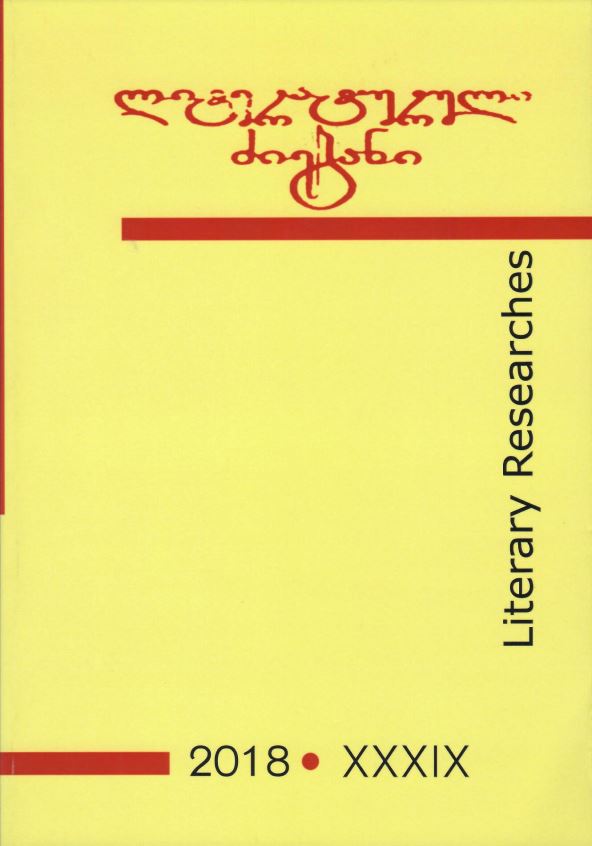გამოქვეყნებული 2018-12-20
საკვანძო სიტყვები
- The Interpretation of the Translated Texts,
- Studying Western Literature in Georgia
როგორ უნდა ციტირება
ანოტაცია
This paper states that in contemporary literary criticism the analysis of literary texts implies not unambiguous interpretation, but a demonstration of semantic diversity. At the same time, receptive aesthetics considers the interpretation of the translated texts in a different plane during which the reader’s “expectation horizon” is again centre of attention. Translation is regarded as the most important segment of the cultural reception. Thanks to it, the actualization of a piece of work occurs in another linguo-ethnic space which was realized by Kita Abashidze as early as 1894. In his view, the translation of the best specimens of European literature and philosophy into Georgian and their replication was a matter of topical importance. In twentieth-century Georgia, together with an intense translation of literary texts into Georgian, there were created the most important theoretical works in which the creative writings of the best representatives of foreign literature were examined. These profound pieces of writing evidence that popularization and analysis of the heritage of foreign writers established new, often banned, values too. For analysis there are selected conceptual studies and essays created in the first half of the last century concerning the classics of English, German and French literature that systematically represent the aspects of studying Western literature in Georgia and reception.

